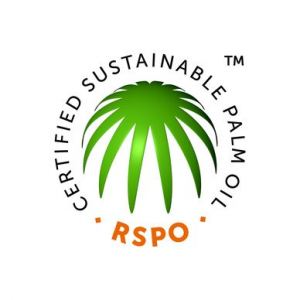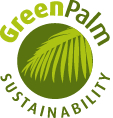Environment & Energy
Related: About this forumMass Die-Off of Fish Underscores Dangers of Palm Oil Industry in Guatemala
Mass Die-Off of Fish Underscores Dangers of Palm Oil Industry in Guatemala
Wednesday, 29 July 2015 00:00
By Jeff Abbott, Truthout | Report
Crossing the River Pasión today, nothing would appear out of the ordinary: Boats ferry people across the river while a woman washes clothing in the murky brown water. But a little over a month ago, the scene was different. On May 30, residents of the municipality of Sayaxché, in the Guatemalan department of Petén, awoke to find tens of thousands of fish floating in the river. For residents, it was clear who was responsible for the die-off: the local palm company, Reforestadora de Palma del Petén (REPSA), a member of the powerful Olmeca Group.
"We rely on the river for fish and our water," Hermelindo Choc, a resident of Arroyo Santa Maria, one of the towns most affected by the contamination, told Truthout. "But now we are afraid to drink the water and to eat the fish. The palm company has left us with nothing."
The environmental tragedy, which community members have called an ecocide, first began on April 29 when heavy rains caused the oxidation pools at the palm firm's finca to overflow, pouring into the river. The firm took steps to hide the impact of the pollution by collecting the dead fish that appeared in the river. But it could not conceal the mass die-off of river life, including 23 species of fish and 21 species of animals that feed on the fish.
The affected communities along the river have demanded that the company's operations be investigated and closed down because of the contamination. But the firm denied responsibility. On June 15, the company issued a statement stating that there was "never an ecocide," and that the company "was not responsible" for the contamination. But this claim contradicts both scientific evidence and the company's statements immediately following the incident.
More:
http://www.truth-out.org/news/item/32105-mass-die-off-of-fish-underscores-dangers-of-palm-oil-industry-in-guatemala
Judi Lynn
(160,545 posts)Palm Oil Industry Tied to Ecocide in Guatemalan River
Written by Jeff Abbott
Monday, 06 July 2015 20:53

. . . .
Continuous Pollution
This isn’t the first time that communities in Guatemala have accused the palm industry of polluting their rivers.
Communities in the Municipality Chisec, Alta Verapaz filled a complaint in the Guatemalan Public Ministry against the Ixcan Palm Company in 2013, for the contamination of their river. The following year, communities in Peten also filed a complaint in the Public Ministry against the pollution of their river. In both cases, the Pubic Ministry failed to investigate the contamination.
“This is not the first time that the fish have died in our rivers,” said Margarita, a representative from the Organization of Women of Alta Verpaz. “In 2013, there was massive death of fish in the rivers of northern Chisec. We have made denouncements against the palm firms in the region.”
The Public Ministry and Environmental ministry have called previous contaminations “accidents,” which have not resulted in new regulations. The failure of the government ministries to respond to the concerns of the communities has increased frustrations with the expansion of palm across the FRANJA of Guatemala, which stretches from Huehuetenango in the west to Izabal in the east. These frustrations have led communities to demand that the government begin to regulate the industry, and end the expansion.
“The palm companies cannot keep expanding,” said Margarita. “They cannot continue to keep sowing, buying, and accumulating more land. We have demanded that the government put in place a law that caps the amount of land used for palm, and allows for us poor farmers to have access to land.”
Expansion of Palm Across Guatemala
The first palm plants were brought to Guatemala in the late 1980s and have since spread like a virus across Guatemala and Central America. The expansion was strengthened especially in the years after the signing of the Central American Free Trade Agreement, which guaranteed multinational companies with security in their investments into sectors such as palm oil.
The fruit of the palm is a high-yielding oil plant, which has gained a significant importance in the processed food industry. Palm oil production has spread because of the increased demand in the United States and Europe as vegetable oil used in a wide range of products including soaps and waxes, as well as popular food products such as Nutella, and Ben & Jerry’s Chubby Hubby Ice Cream. Increasingly the production has been promoted as a renewable biofuel, which has further brought people into the industry.
More:
http://upsidedownworld.org/main/guatemala-archives-33/5382-palm-oil-industry-tied-to-ecocide-in-guatemalan-river
RiverLover
(7,830 posts)Peel back the label and learn more:
http://www.worldwildlife.org/pages/which-everyday-products-contain-palm-oil

Ways you can help...

Look for the RSPO label to ensure you purchase products made with certified sustainable palm oil. This label gives you the confidence that the palm oil was produced in a socially and environmentally responsible way.

Can't find the RSPO label? Look for the Green Palm label to purchase products that support the transition to certified palm oil. Proceeds from Green Palm certificates help growers fund the transition to sustainable palm oil.